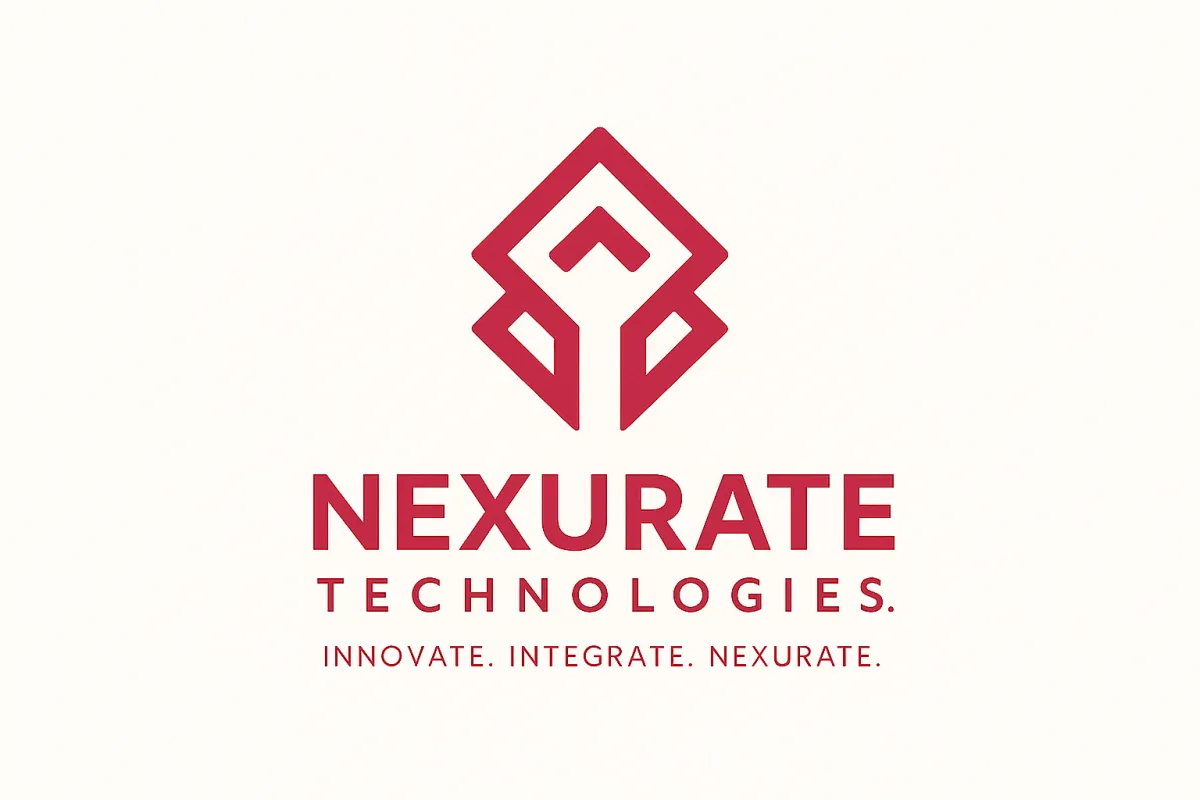📢 AI Voice Agents – Nexurate
🚀 Revolutionize Customer Engagement with AI Voice Agents
In today's hyper-competitive business landscape, every missed call represents lost revenue and frustrated customers. The statistics are staggering and reveal a critical gap in traditional customer service approaches.
According to industry research by Loman.ai, an overwhelming 43% of calls to businesses go unanswered due to busy staff, inadequate coverage, or after-hours timing. This translates to billions in lost revenue annually across industries.
Nexurate's AI Voice Agents represent a paradigm shift in customer engagement. Our advanced technology combines cutting-edge speech recognition, sophisticated natural language processing, and intelligent real-time action capabilities to ensure no customer inquiry goes unanswered.
With 24/7 availability and human-like understanding, our AI agents don't just answer calls—they provide meaningful, contextual interactions that boost customer satisfaction while dramatically reducing operational costs.
Advanced AI Voice Technology.
👥 Thinks Like Humans
🌟 Natural Language Processing.
💡 Intelligent Learning Engine.
👉 Don't let missed calls become missed revenue. Nexurate's AI voice agents blend intelligent automation with human-like conversation, ensuring every customer receives personalized attention 24/7. Transform customer frustration into satisfaction.
🌟 What Makes Nexurate's AI Voice Agent Unique?
Hybrid AI-Human Model – Our revolutionary approach seamlessly transitions between AI efficiency and human empathy. When complex situations arise, the system intelligently escalates to human agents, ensuring personalized, high-quality service that maintains customer trust and satisfaction throughout every interaction .
Advanced NLP & Emotion Detection – Powered by state-of-the-art natural language processing engines, our AI doesn't just hear words—it understands context, nuance, and emotional undertones. This enables empathetic, natural conversations that feel authentically human while maintaining the consistency and availability only AI can provide .
Scalable & Adaptable – Handle call volume fluctuations effortlessly without the overhead of hiring and training additional staff. Our AI agents instantly adapt to demand spikes during peak seasons, marketing campaigns, or unexpected events, delivering consistent service while dramatically reducing operational costs.
Fully Customizable – Every business is unique, and our AI reflects that. Tailored workflows integrate seamlessly with your existing CRM, POS, and communication platforms. Custom conversation scripts, brand voice matching, and industry-specific knowledge bases ensure your AI agent truly represents your business values.
Nexurate Technologies delivers intelligent voice automation that revolutionizes customer experience. Our AI agents handle calls 24/7, boost satisfaction, and drive revenue growth for businesses worldwide.
Get Free Trial of Nexurate Conversational AI Agent
Our AI understands context, tone, and intent using advanced NLP algorithms. Emotion detection capabilities ensure empathetic responses that match customer mood and needs. Every conversation trains the system to become smarter. Machine learning algorithms continuously improve accuracy, response quality, and customer satisfaction rates.
Blogs

CRM Transformation: Unlock Success with AI in 2025

In today's fast-paced business world, staying competitive is crucial. CRM business transformation is the key to unlocking success. It enhances customer relationships and boosts business efficiency.
Digital transformation plays a vital role in this process. It integrates technology with business operations seamlessly. This integration leads to improved customer engagement and satisfaction.
AI-powered CRM solutions, like Salesforce, are game-changers. They offer predictive analytics and sales automation. These tools streamline operations and provide valuable insights.
Understanding customer needs is essential for growth. CRM systems help businesses achieve this by managing customer data effectively. They align sales, marketing, and customer service efforts.
Implementing a CRM strategy requires careful planning. It involves setting clear business requirements and objectives. This ensures a smooth transition and adoption.
The influence of Salesforce's CRM technology is significant. It provides robust tools for business innovation. These tools drive digital transformation and business growth.
In this guide, we explore how CRM helps in business transformation. Discover the steps to unlock your business's potential today.
Understanding CRM Business Transformation
CRM business transformation is not just a buzzword. It is a strategic shift that changes how businesses operate. By focusing on customer-centric approaches, companies can stay ahead.
A CRM system serves as the backbone for this transformation. It organizes customer data and facilitates better decision-making. This system enhances communication across departments, leading to improved collaboration.
Understanding its importance starts with recognizing the benefits. Key benefits include:
Improved customer relationships
Enhanced business efficiency
Increased revenue through better insights
CRM transformation is a continuous process. It demands adapting to new technologies and market changes. Companies must regularly assess their CRM strategies and make necessary adjustments.

For many businesses, the journey begins with setting clear goals. These goals should align with broader company objectives. A robust CRM strategy integrates with daily business operations, ensuring lasting change.
Ultimately, CRM business transformation is about embracing a new way of thinking. It's about leveraging technology to deliver exceptional customer experiences. By doing so, businesses can unlock new growth opportunities and maintain a competitive edge.
The Role of Digital Transformation in CRM
Digital transformation is a pivotal element in CRM strategies. It involves integrating technology to enhance customer interactions. This integration facilitates seamless data sharing across platforms.
Businesses leverage digital tools to understand customer behavior better. These tools provide insights into purchasing patterns and preferences. As a result, companies can offer personalized services and products.
Digital transformation in CRM includes several aspects:
Utilizing AI for predictive analytics
Automating routine customer service tasks
Enabling real-time data access

One significant advantage is increased efficiency. By automating workflows, businesses save time and resources. This efficiency leads to faster service delivery and higher customer satisfaction.
Moreover, digital transformation makes businesses more adaptable. It allows them to respond swiftly to market trends and customer needs. Adapting to digital changes is crucial for staying competitive.
In summary, digital transformation is not optional in CRM. It's an essential component that drives innovation and enhances customer relationships. Embracing digital transformation helps businesses unlock their full potential.
Key Drivers of CRM Business Transformation
CRM business transformation is driven by several crucial factors. Understanding these drivers is essential for a successful implementation.
Firstly, businesses aim for improved customer experience. A seamless experience keeps customers engaged and loyal. CRM systems help tailor interactions to meet individual needs.
Secondly, competition pushes companies toward innovation. Staying competitive requires adopting new technologies. CRM platforms offer tools to innovate and outpace rivals.
Additional drivers include:
The need for integrated data systems
Demand for better sales automation
Increasing importance of customer feedback
Operational efficiency also propels transformation efforts. Streamlined processes reduce errors and save costs. CRM solutions automate tasks, enhancing productivity across departments.
Lastly, the wealth of data available today calls for smarter management. CRM systems provide analytics to interpret this data. Businesses use these insights to refine strategies and target customers effectively.
In conclusion, these drivers highlight the necessity of CRM transformation. Businesses that embrace them position themselves for growth and success in a rapidly evolving market.
CRM Transformation Business Requirements: Setting the Foundation
Laying a strong foundation is key to successful CRM transformation. Defining business requirements is the first crucial step. Clear objectives guide the entire process.
Understanding the company's needs helps set priorities. It's essential to analyze current systems and identify gaps. This ensures that the new CRM addresses specific issues.
Involve stakeholders at every stage. Their insights are invaluable. Gather feedback from sales, marketing, and customer service teams for a holistic approach.
Here are essential requirements to consider:
Integration needs: Seamless data flow across systems
User-friendliness: Intuitive interface for staff adoption
Customization: Tailor features to business specifics
Scalability: Support future growth and changes
Lastly, establish metrics to measure success. Define key performance indicators (KPIs) aligned with goals. This helps track progress and adjust strategies as needed.
In conclusion, a well-defined requirement list facilitates smooth CRM transformation. It aligns technology with business goals, ensuring a strategic fit.
The CRM Business Transformation Process: Step-by-Step
Embarking on CRM business transformation requires a structured approach. A step-by-step process ensures comprehensive coverage. Each phase contributes to overall success.
First, conduct a thorough needs assessment. Identify goals and challenges. This helps in defining the scope of the project.
Next, develop a detailed plan. Include timelines and resources needed. A clear roadmap keeps the team focused and aligned.
Implementation follows planning. Roll out the CRM system in phases. This reduces risks and facilitates smoother adoption.
Training is critical. Ensure staff are well-prepared to use the new system. Focus on features that enhance productivity and service.
Consider this step-by-step checklist for CRM business transformation:
Needs assessment: Understand current challenges
Planning: Develop clear timelines and steps
Implementation: Phase-wise roll-out to minimize disruptions
Training: Equip teams with necessary skills

by Daria Nepriakhina 🇺🇦 (https://unsplash.com/@epicantus)
Finally, evaluate and optimize. Use feedback to make adjustments. Continuous improvement maximizes the benefits of the CRM system.
In summary, a structured process streamlines CRM transformation. It ensures all aspects are covered and aligned with business objectives. This thoughtful approach is crucial for achieving long-term success.
The Influence of Salesforce and AI CRM Solutions
Salesforce has transformed the CRM landscape. Its tools provide robust capabilities for businesses. These enhance customer interaction significantly.
The power of AI in CRM cannot be overstated. AI-driven insights improve decision-making. Predictive analytics offer foresight into customer needs.
Salesforce's impact on business transformation is profound. It offers integrated solutions. These solutions align with digital transformation goals.
Key benefits of Salesforce and AI CRM solutions include:
Enhanced customer data analysis: Uncover hidden patterns
Automated sales processes: Increase efficiency and reduce workload
Personalized customer engagement: Drive satisfaction with tailored experiences

by Sufyan (https://unsplash.com/@blenderdesigner)
AI in CRM enables proactive strategies. It helps businesses anticipate trends. This leads to a competitive edge in dynamic markets.
In conclusion, Salesforce and AI CRM tools drive innovation. They equip businesses to adapt swiftly. This agility paves the way for sustainable growth and success. Through these technologies, enterprises can revolutionize customer interactions, enhance operational efficiency, and navigate the evolving business landscape with confidence.
Enhancing Customer Relationship and Engagement
Customer relationship management (CRM) systems are vital for building meaningful customer connections. They centralize data to provide a unified view of customers, which is essential for understanding needs and preferences. This comprehensive insight allows businesses to tailor interactions and foster loyalty.
Enhanced engagement hinges on personalized communication. CRM systems empower businesses to send customized messages and offers. This personalization strengthens relationships and improves customer satisfaction. Clients who feel valued and understood are more likely to remain loyal.
Effective customer engagement involves multiple touchpoints and strategies. CRM systems support this by enabling consistent interactions across channels, whether it’s email, social media, or direct calls. A seamless experience across platforms ensures that customers receive the attention they deserve.
Key ways CRM enhances customer engagement include:
Personalized communications: Target specific customer needs
Consistent interactions: Ensure uniform experience across channels
Feedback management: Listen and respond to customer inputs

by ALEXAGATE (https://unsplash.com/@alexagate)
In summary, CRM systems are indispensable for nurturing customer relationships. By leveraging data and analytics, businesses can engage more effectively. This not only enhances customer satisfaction but also drives long-term loyalty and business success.
CRM Strategy: Aligning with Business Goals
A CRM strategy must align with a company’s overarching goals. This alignment ensures that CRM initiatives support broader business objectives, leading to cohesive growth and efficiency. Without this synergy, CRM projects may falter.
Defining clear objectives is key to successful CRM strategy alignment. Companies should identify how CRM can contribute to targets like customer retention or revenue growth. Setting these goals provides direction for CRM activities and decision-making.
The strategy should integrate insights from different departments. Cross-departmental collaboration ensures the CRM system meets diverse needs. Sales, marketing, and customer service must work together for a unified approach.
Essential elements of an effective CRM strategy include:
Goal alignment: Connect CRM goals with business targets
Cross-departmental collaboration: Involve all relevant teams
Continuous assessment: Regularly evaluate strategy effectiveness
In conclusion, aligning a CRM strategy with business goals is essential. It maximizes the impact of CRM systems, contributing to sustained business success.
CRM Implementation: Best Practices for Success
Implementing a CRM system can transform a business, but success hinges on following best practices. Effective implementation ensures that the system delivers intended benefits like improved customer relationships and streamlined operations.
Start by clearly defining business requirements. Understand what your business needs from the CRM system, and ensure these align with overall goals. Tailored solutions are more likely to succeed when they address specific operational challenges.
Training is vital for successful CRM adoption. Employees must understand how to use the system effectively to gain maximum value. Comprehensive training should cover all features and demonstrate how they benefit daily tasks.
Collaboration enhances CRM implementation. Engaging staff from different levels and departments encourages acceptance and optimizes system integration. This involvement aids in refining processes and adapting to real-world operations.
Best practices in CRM implementation include:
Define business requirements: Tailor the system to meet specific needs
Provide thorough training: Ensure users are competent with the CRM
Foster collaboration: Engage staff from all levels and departments

by Markus Spiske (https://unsplash.com/@markusspiske)
Successful CRM implementation is not just about choosing the right software. It also involves aligning technology with strategic goals and ensuring employees are ready to use it effectively. This alignment and engagement are fundamental to achieving transformational benefits.
Overcoming Challenges in CRM Business Transformation
CRM business transformation is not without its hurdles. Many organizations face challenges that can impede progress if not addressed promptly. Awareness and preparation are key to overcoming these obstacles effectively.
Resistance to change is common when new systems are introduced. Employees may be wary of altering their routines. It's crucial to communicate benefits clearly and involve staff early in the process to foster acceptance.
Data migration also presents a challenge. Ensuring data accuracy and completeness during transfer is essential. Proper planning and execution can mitigate risks associated with data handling.
Technical issues can arise during CRM implementation. These might range from software bugs to integration hiccups. Having a dedicated support team ready to resolve these issues quickly is vital.
Key challenges include:
Resistance to change: Address through clear communication
Data migration: Plan carefully to ensure accuracy
Technical issues: Maintain a support team for quick resolutions
By anticipating these challenges, businesses can navigate the CRM transformation process more smoothly, leading to successful outcomes.
Measuring Success: KPIs and ROI in CRM Transformation
Assessing the success of CRM transformation requires clear metrics. Key Performance Indicators (KPIs) provide a framework to measure effectiveness. These indicators highlight areas of success and those needing improvement.
ROI is another crucial metric. Determining the return on investment helps gauge the financial impact of CRM initiatives. It reflects the balance between costs and increased revenue from improved operations and customer engagement.
Effective measurement involves tracking specific metrics, such as:
Customer Retention Rates: Gauge loyalty and satisfaction
Sales Growth: Measure improvements in sales processes
Customer Acquisition Cost: Evaluate cost efficiency in attracting new customers
These metrics offer insights into the transformation's impact, helping businesses refine their CRM strategy for optimal results. By focusing on well-defined KPIs and ROI, companies can ensure their CRM efforts align with broader business goals.
Future Trends: AI, Automation, and Business Innovation
The future of CRM business transformation is heavily influenced by evolving technologies. AI and automation are at the forefront, revolutionizing how businesses interact with customers. These advancements create opportunities for more personalized and efficient experiences.
Automation streamlines routine tasks, freeing up valuable time for strategic initiatives. It enables businesses to focus on innovation and growth. With fewer manual operations, teams can dedicate resources to developing new products and services.
AI delivers deeper insights through advanced analytics and data processing. Predictive analytics help anticipate customer needs and market trends. This foresight allows for proactive decision-making and a competitive edge.
Emerging trends promise to reshape CRM strategies, including:
Predictive Customer Service: AI-driven support anticipates user needs
Hyper-personalization: Tailored interactions and communications
Voice and Chatbot Integration: Seamless interaction channels
By integrating these technologies, businesses can foster innovation and achieve significant market growth. Embracing these trends positions companies at the cutting edge of digital transformation.
Conclusion: Unlocking Business Growth Through CRM Transformation
CRM business transformation offers immense potential for driving success. By harnessing CRM systems, businesses improve customer relationships and operational efficiency. Adopting a strategic approach ensures a more seamless transition and lasting benefits.
Strategic alignment with business goals enhances CRM effectiveness. When integrated correctly, CRM solutions provide invaluable insights that promote growth and innovation. Organizations can adapt more readily to changing customer demands and market environments.
Businesses must remain agile in the dynamic digital landscape. A commitment to continuous CRM evaluation and updates keeps organizations competitive. By embracing CRM transformation, companies unlock unprecedented growth and sustainability.
🔎 How Nexurate's AI Voice Agent Works

LISTEN
Advanced speech-to-text conversion using industry-leading engines like Whisper and DeepGram processes incoming audio with 99.5% accuracy, even in noisy environments or with diverse accents and speaking patterns.

UNDERSTAND
Our AI brain, powered by GPT-5 and Claude, goes beyond simple keyword matching. It interprets customer intent, analyzes context from conversation history, and reasons through complex multi-part requests with human-level comprehension.

RESPOND
Intelligent response generation creates contextually appropriate replies that are then converted to natural, human-like speech using 11labs TTS technology, complete with appropriate tone, pacing, and emotional inflection.

ACT
Beyond conversation, our AI takes action—booking appointments directly in your calendar, updating customer records in your CRM, processing orders, or intelligently escalating complex issues to human specialists when needed.
💡 Industry Applications: Tailored Solutions for Your Business
Here’s why brands choose Nexurate
Nexurate's AI Voice Agents are engineered to excel across diverse industries, with specialized configurations and compliance measures for sector-specific requirements.
🌟 Benefits of Nexurate’s AI Voice Agents
✅ 24/7 Availability
✅ Real-Time Emotion Detection
✅ Multilingual Support
✅ Deep System Integration
✅ Usage-Based Pricing
✅ Enterprise Security
03.
🌍 Restaurants & Hospitality
Transform order taking and reservation management with AI that understands menu modifications, dietary restrictions, and complex booking requirements. Handle peak-hour call volumes, process takeout orders, and manage table reservations with accuracy that matches your best human staff.
01.
🎯 Healthcare
Streamline patient interactions with HIPAA-compliant AI agents that handle appointment scheduling, prescription refill requests, basic triage questions, and follow-up care coordination. Our healthcare-trained models understand medical terminology and maintain patient privacy while reducing administrative burden on staff.
04.
💡 Finance & Insurance
Provide secure, compliant customer support with AI agents trained in financial services regulations. Handle account inquiries, process loan applications, manage policy questions, and conduct gentle debt collection reminders while maintaining regulatory compliance and customer relationships.
02.
📈 Real Estate
Capture every property inquiry with AI agents that qualify leads, schedule viewings, and provide detailed property information. Our real estate specialists handle initial client screening, coordinate showing appointments, and maintain prospect engagement during off-hours when deals are often made.
05.
📊 E-commerce & Retail
Create voice shopping experiences that guide customers through product selection, process orders, track shipments, and handle returns. Our retail AI understands product catalogs, inventory levels, and customer preferences to drive sales and satisfaction.
🔥 Ready to Transform Your Customer Experience Today ?
📩 Don't let another customer call go unanswered. Experience the perfect harmony of AI innovation and human connection with Nexurate Technologies.
Your customers deserve the best customer service experience. Give them the intelligent voice technology of tomorrow, starting today.
👉 Don’t wait — Get started today with Nexurate!
Frequently Asked Questions
How quickly can Nexurate's AI Voice Agent be implemented?
Typical deployment takes 1-2 weeks with full integration support. Our dedicated implementation team handles technical setup, custom configuration, and staff training to ensure seamless adoption without disrupting your current operations.
Can the AI handle complex customer requests?
Absolutely. Our hybrid model intelligently recognizes when human expertise is needed and escalates complex issues seamlessly. The AI handles 80% of routine inquiries while ensuring complex situations receive appropriate human attention.
Is my customer data secure?
Security is our top priority. We maintain GDPR, HIPAA, and SOC 2 compliance with enterprise-grade encryption, regular security audits, and strict data handling protocols. Your customer information is protected with bank-level security measures.
What languages does the AI support?
Our multilingual platform supports over 25 languages including English, Spanish, French, German, Italian, Portuguese, and more. Language detection is automatic, and responses maintain cultural appropriateness and local business customs.
How do I measure ROI?
Our comprehensive analytics dashboard provides detailed call metrics, lead conversion tracking, customer satisfaction scores, and cost-per-interaction analysis. Most clients see positive ROI within the first month of implementation.
What's the ROI of AI voice agents?
Clients typically see 30-50% cost reduction in support operations, 25% increase in customer satisfaction, and 40% improvement in first-call resolution rates within 90 days.
How does pricing work for AI voice services?
We offer transparent usage-based pricing starting at $0.10 per minute with volume discounts. No setup fees, no hidden costs - pay only for active call time.
Can AI agents integrate with existing CRM systems?
Yes, we provide native integrations with Salesforce, HubSpot, Zendesk, and 100+ other platforms. Custom API integrations available for proprietary systems.
Contact Us
Get in touch with us today to discuss how we can help elevate your brand through expert digital marketing solutions.
Free Growth Strategy Session !
Are you ready to take your Business to the next level? how Nexurate Can Help Get More Leads, Customers, and Sales...

Opening Hours
Monday - Saturday | 10:00 AM - 07:00 PM
Phone : 099446 22972
